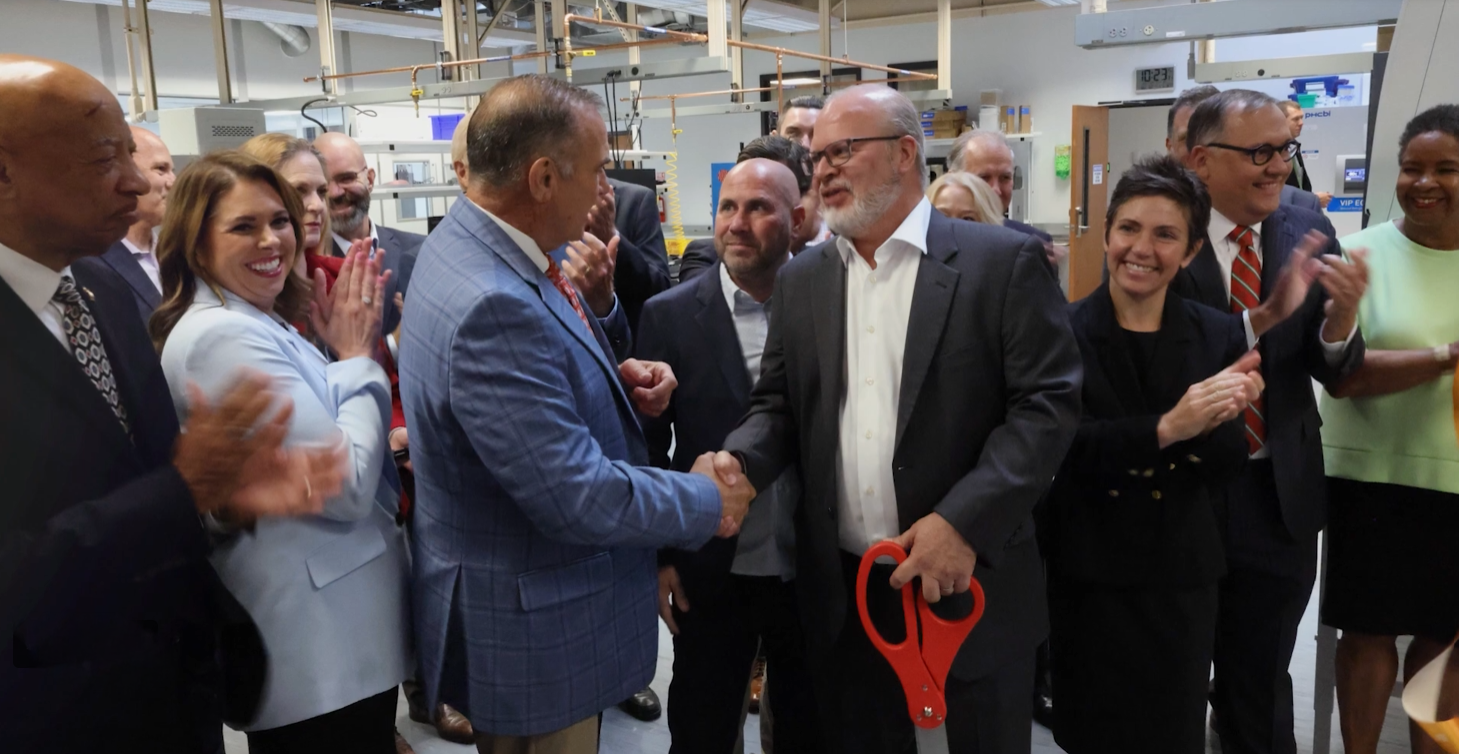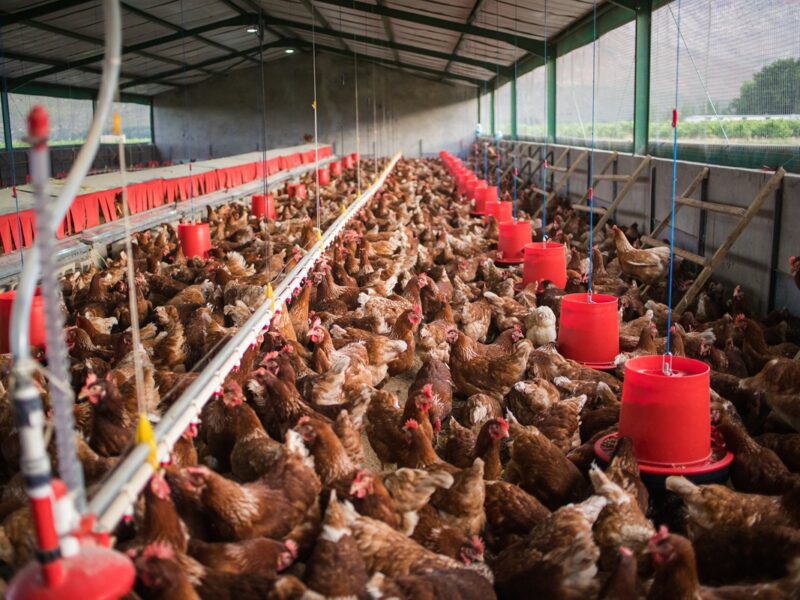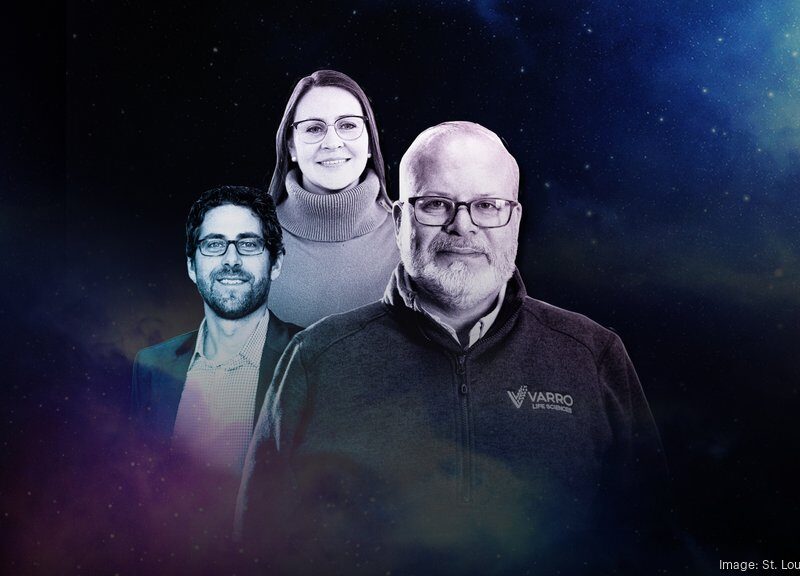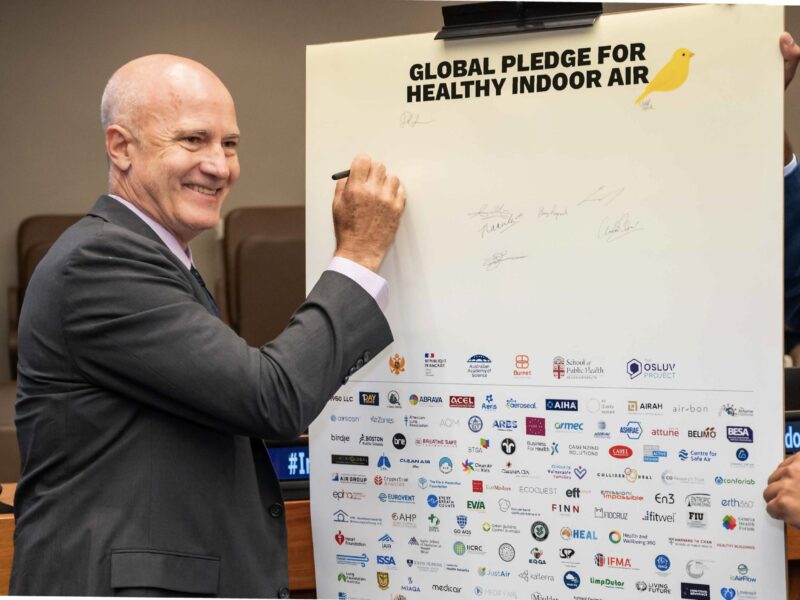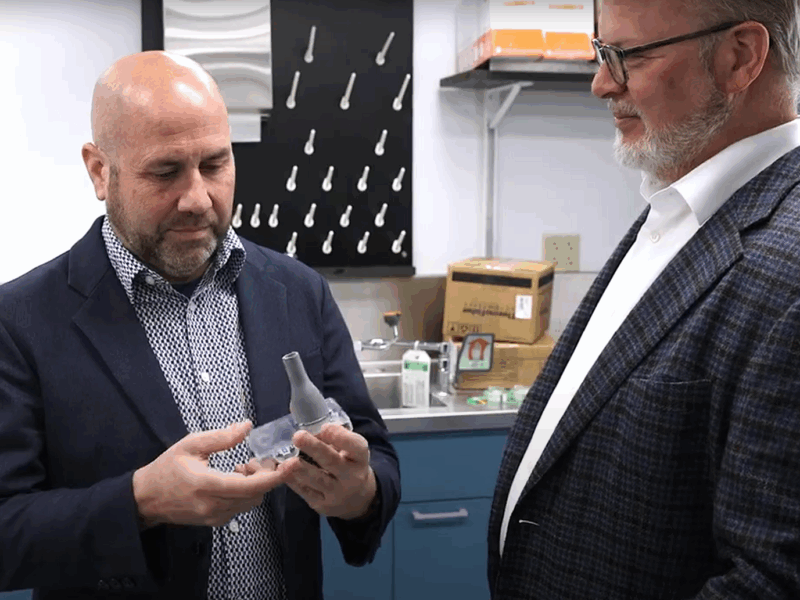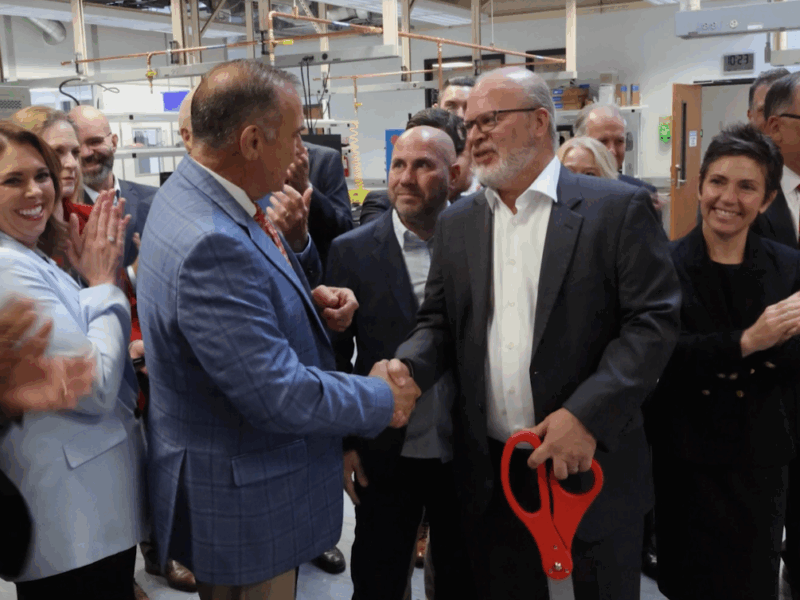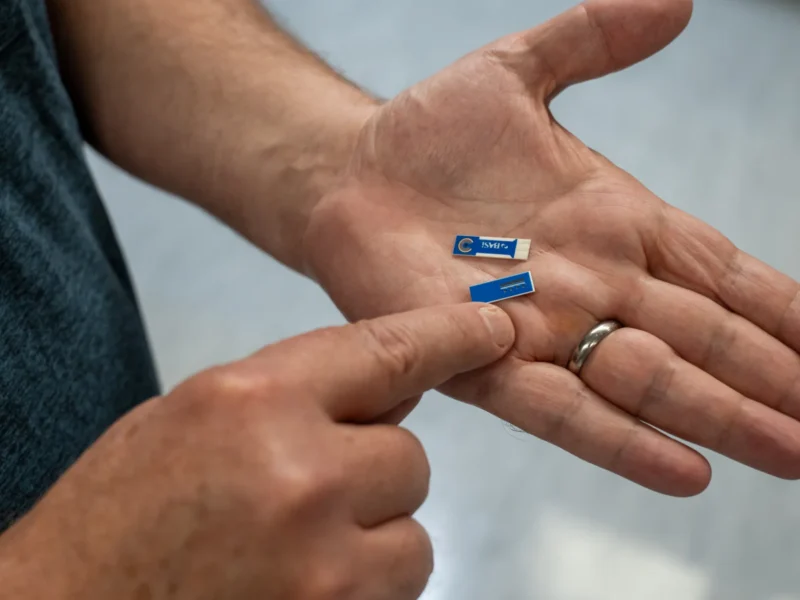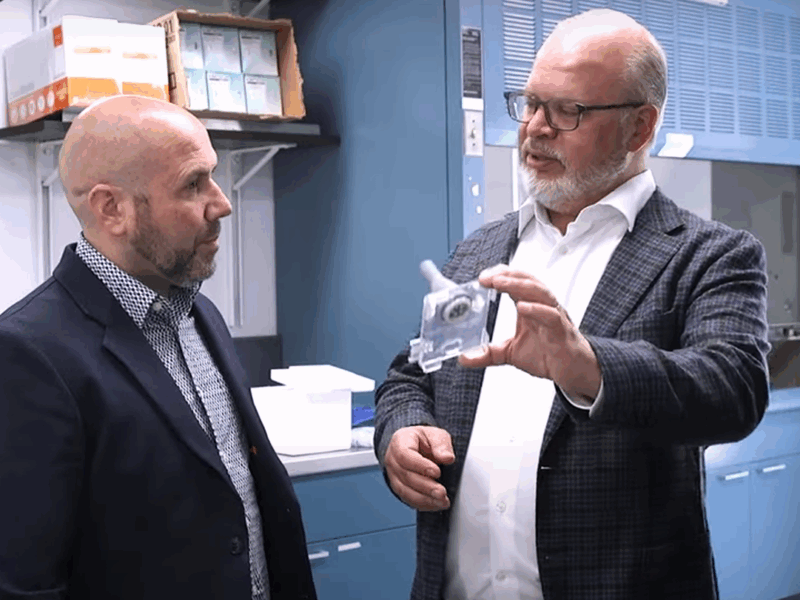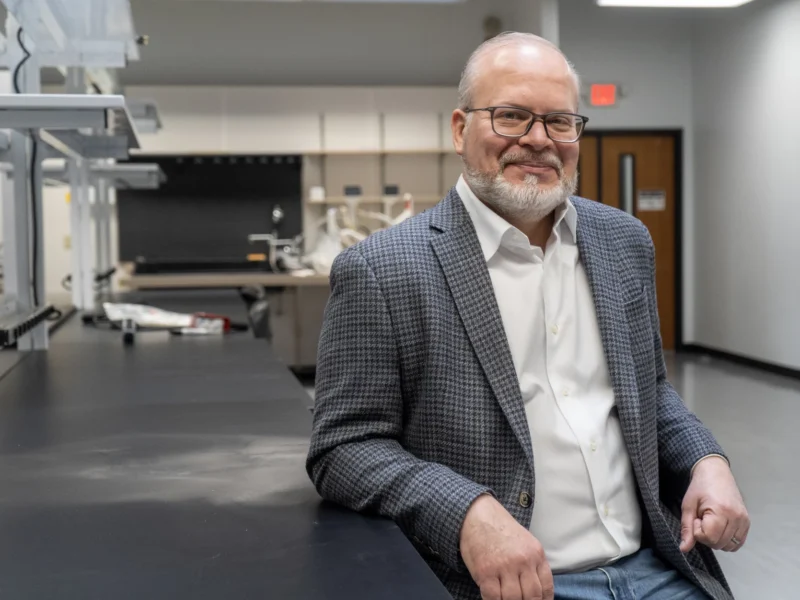Disease Prevention Starts with Detection
The Varro product portfolio leverages a cutting-edge, real-time pathogen identification platform that integrates microbiology, aerosol engineering, and advanced electronics to deliver powerful solutions. Our non-invasive technology enables the detection of multiple targets from a single breath or air sample.

Micro Immunoelectrodes (MIE)
The microimmuno-electrode (MIE) is a customizable electrochemical biosensor that uses nanobodies to rapidly detect pathogens or allergens with higher specificity than PCR. It delivers results in just 60 seconds, can be tailored for single or multiplexed use, and offers superior confidence in diagnostic accuracy.
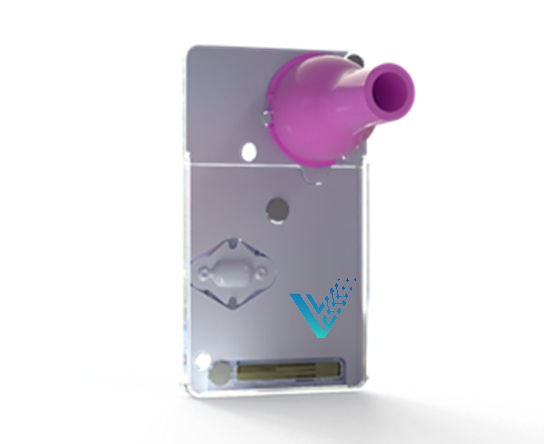
Breath Based Diagnostic
This breath-based diagnostic delivers accurate, non-invasive results in just 60 seconds, offering a more comfortable alternative to nasal swabs. Designed for ease of use without specialized training, it empowers widespread accessibility while maintaining the highest standards through rigorous peer-reviewed validation.
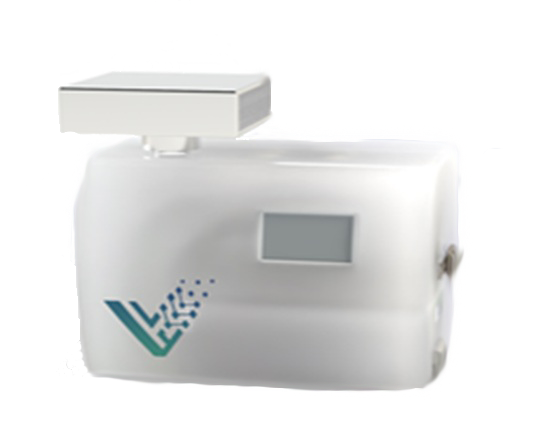
Air Bio-Detector
The air bio-detector uses nanobodies and MIEs to rapidly detect viral, fungal, or bacterial pathogens in the air, monitoring from 1 to 100 targets with minimal upkeep. It provides early, accurate detection to protect public spaces, strengthen agricultural supply chains, and equip businesses and individuals with critical health and safety insights.
Exciting Things are Happening at Varro!
Varro Life Sciences is building momentum with the opening of its new St. Louis R&D facility. Backed by a $42.5 million investment and 33 new jobs, the company is accelerating its path toward breakthrough biosensor innovations and long-term growth.
For more coverage of the ribbon cutting ceremony, click here.
Wide Array of Industry Applications
From military readiness to agriculture, transportation, and public spaces, our technologies provide critical real-time insights to protect health, safety, and supply chains.
News and Updates
Get the Latest from Varro Bio!
Fill out the form below and subscribe to our newsletter.




